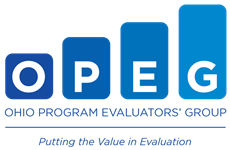Join the data revolution. Companies are searching for data scientists. This specialized field demands multiple skills not easy to obtain through conventional curricula. Introduce yourself to the basics of data science and leave armed with practical experience programming massive databases.
About the Course
Commerce and research is being transformed by data-driven discovery and prediction. Skills required for data analytics at massive levels – scalable data management on and off the cloud, parallel algorithms, statistical modeling, and proficiency with a complex ecosystem of tools and platforms – span a variety of disciplines and are not easy to obtain through conventional curricula. Tour the basic techniques of data science, including both SQL and NoSQL solutions for massive data management (e.g., MapReduce and contemporaries), algorithms for data mining (e.g., clustering and association rule mining), and basic statistical modeling (e.g., logistic and non-linear regression).
About the Instructor(s)

Bill Howe is the Director of Research for Scalable Data Analytics at the UW eScience Institute and holds an Affiliate Assistant Professor appointment in Computer Science & Engineering, where he leads a group studying data management, analytics, and visualization systems for science applications. Howe has received awards from Microsoft Research and honors for papers in scientific data management, and serves on a number of program committees, organizing committees, and advisory boards in the area, including the advisory board of the Data Science certificate program at UW. He holds a Ph.D. in Computer Science from Portland State Universityand a Bachelor's degree in Industrial & Systems Engineering from Georgia Tech.
Course Syllabus
Specific Topics:
* Data modeling: relations, key-value, trees, graphs, images, text
* Relational algebra and parallel query processing
* NoSQL systems, key-value stores
* Tradeoffs of SQL, NoSQL, and NewSQL systems
* Algorithm design in Hadoop (and MapReduce in general)
* Basic statistical analysis at scale: sampling, regression
* Introduction to data mining: clustering, association rules, decision trees
* Case studies in analytics: social networking, bioinformatics, text processing
Recommended Background
You will need basic programming experience with Java or Python, and some familiarity with databases. The target audience is undergraduate students across disciplines who wish to build proficiency working with large datasets to perform predictive analytics.
Suggested Readings
Course Format
There will be a quiz and a programming assignment each week, as well as two exams. The assignments involving large datasets will be completed using Amazon Web Services or Microsoft Azure cloud services.
